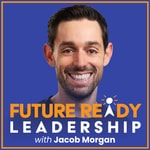Economics Detective Radio – Détails, épisodes et analyse
Détails du podcast
Informations techniques et générales issues du flux RSS du podcast.

Economics Detective Radio
Garrett M. Petersen
Fréquence : 1 épisode/16j. Total Éps: 154

Classements récents
Dernières positions dans les classements Apple Podcasts et Spotify.
Apple Podcasts
🇩🇪 Allemagne - socialSciences
28/07/2025#82🇩🇪 Allemagne - socialSciences
21/07/2025#73🇩🇪 Allemagne - socialSciences
20/07/2025#61🇫🇷 France - socialSciences
10/07/2025#96🇺🇸 États-Unis - socialSciences
09/07/2025#98🇫🇷 France - socialSciences
09/07/2025#86🇫🇷 France - socialSciences
08/07/2025#77🇫🇷 France - socialSciences
07/07/2025#67🇫🇷 France - socialSciences
06/07/2025#55🇺🇸 États-Unis - socialSciences
05/07/2025#80
Spotify
Aucun classement récent disponible
Liens partagés entre épisodes et podcasts
Liens présents dans les descriptions d'épisodes et autres podcasts les utilisant également.
See all- https://www.charitynavigator.org/
76 partages
- https://www.givedirectly.org/
42 partages
- https://www.thefire.org/
37 partages
- https://twitter.com/adamsmithworks
232 partages
- https://twitter.com/StuartJRitchie
6 partages
- https://twitter.com/s8mb
3 partages
Qualité et score du flux RSS
Évaluation technique de la qualité et de la structure du flux RSS.
See allScore global : 53%
Historique des publications
Répartition mensuelle des publications d'épisodes au fil des années.
The Hidden Rules of Ownership with Michael Heller
vendredi 5 mars 2021 • Durée 42:05
Michael Heller joins the podcast to discuss his new book, Mine! How the Hidden Rules of Ownership Control Our Lives. This book explores the implicit social rules governing ownership. In brief, these rules are as follows:
- Attachment ("it's mine because it's connected to something of mine")
- Possession ("it's mine because I physically control it")
- First-in-time ("it's mine because I was here first")
- Labour ("it's mine because I worked for it")
- Self-ownership ("it's mine because it came from my body")
- Family ("it's mine because my grandfather left it to me")
We discuss these six rules with reference to many examples of how they play out in the modern world, from conflicts over airline seats to the rise and fall of Soviet communism.
The Wealth of Nations with Sarah Skwire
jeudi 4 février 2021 • Durée 49:51
On today's episode, I discuss Adam Smith's Wealth of Nations with Sarah Skwire. Sarah is part of the team tweeting through the book @AdamSmithWorks. We discuss the project and talk through the first few chapters of the Wealth of Nations.
Climate, Disease, and the Fall of Rome with Kyle Harper
Épisode 144
vendredi 22 mai 2020 • Durée 01:01:02
Historian Kyle Harper joins the show to discuss his book The Fate of Rome: Climate, Disease, and the End of an Empire. We discuss the fall of the Roman empire and the new scientific discoveries that have shed more light on its nature and causes. Kyle's work looks at the epidemics and climatic changes that hit the empire, contributing to its disintegration.
Interweaving a grand historical narrative with cutting-edge climate science and genetic discoveries, Kyle Harper traces how the fate of Rome was decided not just by emperors, soldiers, and barbarians but also by volcanic eruptions, solar cycles, climate instability, and devastating viruses and bacteria. He takes readers from Rome’s pinnacle in the second century, when the empire seemed an invincible superpower, to its unraveling by the seventh century, when Rome was politically fragmented and materially depleted. Harper describes how the Romans were resilient in the face of enormous environmental stress, until the besieged empire could no longer withstand the combined challenges of a “little ice age” and recurrent outbreaks of bubonic plague.State Capacity and the Rise of the Modern Nation State with Mark Koyama
vendredi 9 juin 2017 • Durée 47:27
My guest for this episode is Mark Koyama of George Mason University. Our topic is a recent paper titled, "States and Economic Growth: Capacity and Constraints," which Mark coauthored with Noel Johnson.
Just recorded at great podcast with @GarrettPetersen on my work on state capacity (with @ndjohnson).
— Mark Koyama (@MarkKoyama) May 24, 2017As stated in the paper, "state capacity describes the ability of a state to collect taxes, enforce law and order, and provide public goods." That said, state capacity does not mean big government. A state may have the power to impose rules across its territory, but it doesn't have to use that power in a tyrannical way. Another way of saying that is to say that having a high state capacity is compatible with Adam Smith's desire for "peace, easy taxes, and a tolerable administration of justice."
One metric that researchers use to measure state capacity is tax revenue per capita. But as Mark is careful to point out, a state with less state capacity can still sometimes achieve a relatively high income through tax farming. This is the practice in many pre-modern states of auctioning off the right to extract tax revenues to local elites in different regions.
We discuss the rise of modern nation-states in various regions, and why some states developed more state capacity than others going into the twentieth century. In particular, we discuss Europe's transition away from a feudal system ruled in a decentralized way by monarchs who held power based on their personal relationships with local lords. England's Glorious Revolution of 1688 allowed it to develop its state capacity earlier than other European nations, with a centralized tax system controlled by parliament.
By contrast, continental powers like the French Ancien Régime and the Hapsburg Empire were legally and fiscally fragmented, leading them to develop their state capacity much later than England.
We also discuss the development of state capacity in Asia, and why Meiji Japan was able to develop its state capacity much faster than Qing Dynasty China.
Money, Trade, and Economic Growth in the Early Modern Period with Nuno Palma
vendredi 2 juin 2017 • Durée 44:12
My guest for this episode is Nuno Palma, he is an assistant professor of economics, econometrics, and finance at the University of Groningen.
Our discussion begins with the monetary history of England. Nuno has authored a study that reconstructs England's money supply from 1270 to 1870. We discuss his methods and findings. We also discuss the influx of precious metals into European markets after the discovery of the New World.
We discuss the impact of empire on economic development with reference to Nuno's work on the Portugese empire. We revisit some topics from my previous interview with Jari Eloranta.
Later in the conversation, we discuss the effect of trade on economic growth during the industrial revolution. Nuno places a greater importance on international trade than McCloskey and Mokyr, but a lesser importance than historians like Wallerstein. Although gross trade flows were not particularly large, trade created new domestic industries like the porcelain industry that was created to compete with Chinese imports. Imports also encouraged urbanization among the European population, something that created many positive spillover effects over the long term.
The Economic History of War and Conflict with Jari Eloranta
vendredi 26 mai 2017 • Durée 50:55
My guest for this episode is Jari Eloranta, he is a professor of comparative economic and business history at Appalachian State University. Jari's work focuses on the economic history of national defense. In this far-reaching conversation, we go all the way back to pre-modern societies' methods of financing their militaries, then trace the transitions up through the early modern period and into the 20th century. We discuss the way war has shaped modern states and institutions.
Books mentioned:
The First Total War: Napoleon's Europe and the Birth of Warfare as We Know It, by David A. Bell.
The Gunpowder Age: China, Military Innovation, and the Rise of the West in World History, by Tonio Andrade.
Rentberry, Digital Markets, and Affordable Housing with Alex Lubinsky
samedi 15 avril 2017 • Durée 38:37
My guest today is Alex Lubinsky, co-founder of the Silicon Valley startup Rentberry.
Rentberry is a platform that lets landlords post units for rent so that tenants can bid on them. Once a landlord posts a vacancy, different potential tenants can make offers and the landlord can select which one to rent to.
Importantly, the landlord doesn't have to select the highest bidder. Potential tenants on Rentberry put in their personal characteristics up on the site, so landlords can select for the type of tenants they want. Maybe they're willing to accept a lower rent from a quiet single woman than a family of five with four dogs and six cats.
There has been some controversy about the site, stemming from the fact that it leads tenants to bid against one another, potentially pushing up prices. One tenant advocate said, "I think it's incredibly arrogant and incredibly concerning in light of the fact that we have the highest number of homeless families since the Great Depression. For them to do something to increase the rents seems really callous." Vanity Fair said Rentberry would turn rental markets into a Hunger Games-like death match.
Alex and I address these criticisms in the episode. The critics are missing one simple element to the story, which is that Rentberry doesn't just cause more tenants to bid on any given listing, driving up the price, it also allows each tenant to bid on more listings, driving down prices by giving each tenant more options. The two forces cancel one another. By only charging a one-time fee of $25 when a lease is signed, Rentberry reduces the costs of applying for vacancies. In some markets, tenants can expect to pay hundreds of dollars in application fees while apartment hunting and Rentberry allows them to avoid those. What Rentberry is really doing is allowing the market to approach equilibrium more rapidly.
Preliminary evidence also suggests that Rentberry decreases vacancy rates, since these are lower for landlords using the site than for the country in general. This is equivalent to an increase in the housing supply, which is unambiguously good.
Listen to the episode for the full discussion.
50th Episode Special with Garrett Petersen and Ash Navabi
vendredi 7 avril 2017 • Durée 44:57
Hello and welcome to the fiftieth episode special of Economics Detective Radio! Today we have Ash Navabi back on the program, but we’re flipping the script: Ash will be interviewing me about the show and about all the things I’ve learned while making it.
In this episode, I alienate the political right by discussing the importance of labour mobility and the desirability of open borders. I also alienate the political left by expressing a lukewarm position on climate change. I also discuss my own research plans relating to law and economics.
Finally, we discuss literature! Really, if you like Economics Detective Radio, you have to hear this episode.
Anthropometric History, Quebec, and the Antebellum Height Puzzle with Vincent Geloso
samedi 25 mars 2017 • Durée 40:06
Returning to the podcast is Vincent Geloso of Texas Tech University.
Our topic for this episode is anthropometric history, the study of history by means of measuring humans. Doing serious historical research into the distant past is difficult work, because the further you look back in time, the less information you can access. For the 20th century we have wonderful thing like chain-weighted real GDP. Going back further, we have some statistics, lots of surviving physical evidence, and loads of documents and writings. Going further than that, we're left with the odd scrap of thrice-copied surviving manuscripts and second-hand accounts from people who lived centuries after the events they describe. And going even further than that, we have just bones and dilapidated temples with the occasional inscription.
Anthropometric history allows us to look into the distant past at what economic historians like Vincent hope might be a good measure of different populations' health and standards of living: their heights. People who have healthy upbringings with lots of access to food tend to be taller than people who don't; that's why modern humans are much taller than they were a thousand or even a hundred years ago.
Vincent has contributed to this literature with his latest co-authored paper, The Heights of French-Canadian Convicts, 1780s to 1820s. The abstract reads as follows:
This paper uses a novel dataset of heights collected from the records of the Quebec City prison between 1813 and 1847 to survey the French-Canadian population of Quebec—which was then known either as Lower Canada or Canada East. Using a birth-cohort approach with 10 year birth cohorts from the 1780s to the 1820s, we find that French-Canadian prisoners grew shorter over the period. Through the whole sample period, they were short compared to Americans. However, French-Canadians were taller either than their cousins in France or the inhabitants of Latin America (except Argentinians). In addition to extending anthropometric data in Canada to the 1780s, we are able to extend comparisons between the Old and New Worlds as well as comparisons between North America and Latin America. We highlight the key structural economic changes and shocks and discuss their possible impact on the anthropometric data.Listen to the full episode for our fascinating discussion of this branch of historical research, including the so-called "Antebellum puzzle," the anomalous observation that American heights decreased in the years prior to the Civil War even though the economy was apparently growing rapidly. We also discuss the heights of slaves in the American South, who were taller than their white counterparts despite being oppressed as slaves.
Doughnut Economics, Inequality, and the Future of Economic Growth with Kate Raworth
vendredi 17 mars 2017 • Durée 01:06:46
Today's guest is Kate Raworth, she is a senior visiting research associate at Oxford University’s Environmental Change Institute, a Senior Associate at the Cambridge Institute for Sustainability Leadership, and the author of Doughnut Economics: Seven Ways to Think Like a 21st-Century Economist.
In this interesting and wide-ranging discussion, we discuss Kate's critiques of the standard models taught to economics undergraduates, as well as her views on development, economic growth, inequality, and the environment. You might think our viewpoints would be very different on these topics, but we find a surprising amount of common ground.
During our discussion of inequality and the patterns noticed in the 1950s by Simon Kuznets, I bring up Geloso and Magness' work on inequality in the early 20th century. You can hear my conversation with Vincent Geloso about that research here, as well as his comments on it here.









